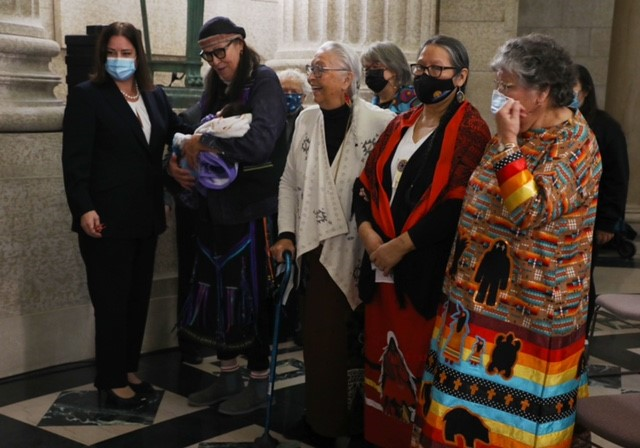Manitoba to fund $3M Indigenous-led healing village

Posted December 14, 2021 5:17 pm.
Last Updated December 14, 2021 7:11 pm.
A new Indigenous-led healing village is being built in Manitoba that will support women who have been the victims of violence, multi-generational trauma, and human trafficking.
The Manitoba government will spend $3 million on the construction of the healing village, which will be run by the Clan Mothers – a grassroots Indigenous women’s led organization dedicated to solving systemic and generation trauma in Indigenous communities.
“We need to do things right, we need to do things differently and we need to follow our traditional ways to do it,” said Billie Schibler of the Clan Mothers Elder Council.
Schibler says the healing village will combine a traditional Indigenous matrilineal, land-based model of healing with the teaching of skills to help prepare the women for life beyond the village.
There is no set amount of time a person is allowed to stay in the village while recovering, says Schibler.
Women with children are welcome to bring their kids with them.
“The Clan Mothers know that when we help a woman heal, we’re helping her family heal,” said Rachelle Squires, Manitoba’s minister of families.
Squires says the village site will help grow communities for people who had their communities taken from them.
“The trauma of missing and murdered Indigenous women and girls and the loss of children at residential schools are devastating and its impacts are long-lasting,” said Premier Heather Stefanson. “As Manitobans and Canadians, we have a responsibility to acknowledge our country’s hard truths.”
The premier says she is happy to be partnering with the Clan Mothers in support of this Indigenous-led initiative.
We are very pleased to provide $3 million to Clan Mothers for their Healing Village, an Indigenous-led, culturally safe healing space for women who have experienced intergenerational trauma, sexual violence, and exploitation. #ProgressingTogether https://t.co/NxMgX43KKW pic.twitter.com/sc3IqRDFrn
— Heather Stefanson (@HStefansonMB) December 14, 2021
The province says the land for the village has been donated as a gift by the Catholic Corporation as part of their commitment to reconciliation efforts.
Schibler says the elders and grandmothers who will be providing treatment will draw upon their lived experience to provide culturally relevant healing through ceremony.
“These are people who have lived experience in the violence, in exploitation, in all of the things that have affected our women out there, and our trans and our two-spirit out there,” said Schibler.
The first phase of the project has already started with site inspections and land surveys, including the building of ceremonial structures. The second phase is expected to be underway next spring.








